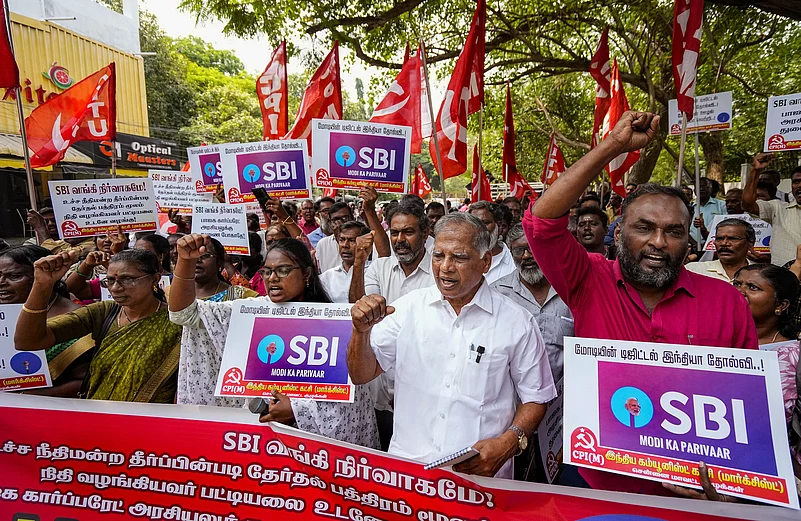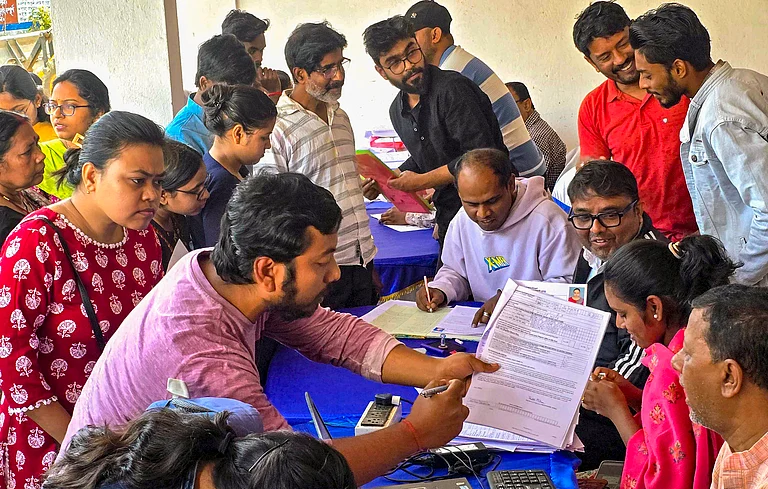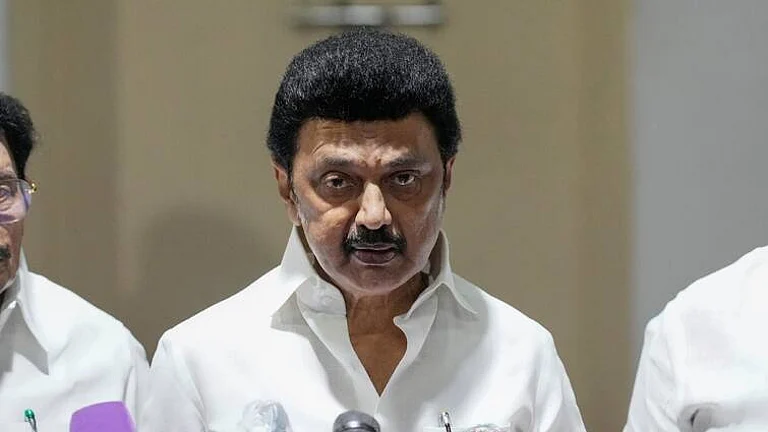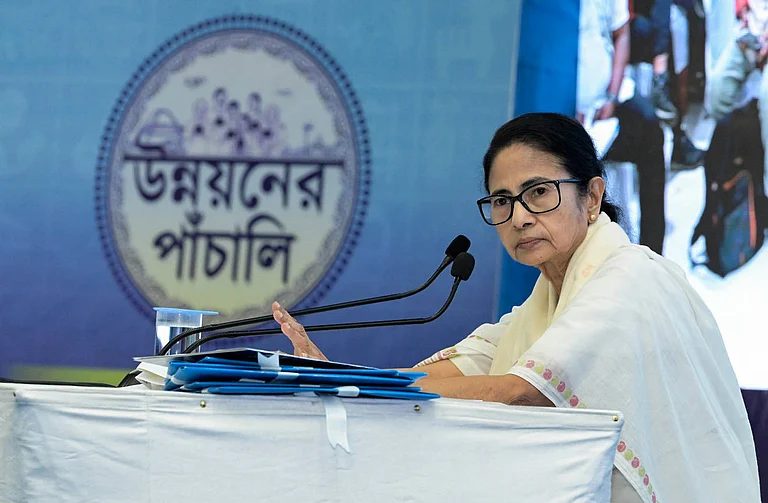In 2017, the Electoral Bond Scheme was introduced through the Finance Bill. This scheme allowed donors to purchase electoral bonds from specified State Bank of India (SBI) branches. These bonds could be donated to registered political parties, which could then encash them through their verified accounts.
The then-Union Finance Minister Arun Jaitley said in the Lok Sabha said at the time, “Electoral bonds would be a bearer instrument in the nature of a promissory note and an interest-free banking instrument. A citizen of India or a body incorporated in India will be eligible to purchase the bond.”
In September 2017, the NGO Association for Democratic Reforms (ADR) filed petitions in the Supreme Court challenging the amendments to the Finance Act. The petitions alleged that the acts were improperly passed as money bills to avoid scrutiny by the Rajya Sabha. The petitioners also argued that the Electoral Bond Scheme promoted non-transparency in political funding and could lead to widespread electoral corruption, according to Supreme Court Observer reports.
On January 2, 2018, the Central government notified the electoral bond scheme.
On November 7, 2022, the Electoral Bond Scheme was amended to extend the number of days for selling bonds from 70 to 85 in a year when assembly elections were to be held. This change was made shortly before the Gujarat and Himachal Pradesh polls.
Chief Justice of India D.Y. Chandrachud on October 16, 2023 referred the challenge to the validity of the electoral bonds scheme, which allows anonymous donations to political parties, to a Constitution Bench comprising five judges. This decision came after a plea was made during the oral mentioning hour to refer the case from the current three-judge Bench to a larger Bench.
On October 31, 2023, a five-judge Constitution bench headed by CJI Chandrachud and comprising Justices Sanjiv Khanna, B.R. Gavai, J.B. Pardiwala and Manoj Misra commenced hearing on pleas chellenging the scheme.
After three days of consecutive hearings, the SC on November 2 reserved its verdict.
On February 15, the Supreme Court declared the Electoral Bond scheme unconstitutional. The bench said that anonymous electoral bonds were violative of the Right to Information and Article 19(1)(a). The SC also asked the State Bank of India to provide electoral bonds donation details to the Election Commission and ordered the Election Commission to publish it on its website by March 13, 2024.
On March 4, the State Bank of India requested the Supreme Court for more time, until June 30, 2024, to provide information about electoral bonds to the Election Commission of India.
On March 7, a petition was submitted to the Supreme Court, asking for contempt charges to be filed against the State Bank of India. The petition alleged that the bank intentionally and knowingly failed to obey the court's order to submit information about contributions to political parties through electoral bonds.
In the hearing on March 11, the Supreme Court dismissed SBI’s plea seeking extension of the deadline and questioned what SBI had done in the past 26 days?
"In the last 26 days, what is the extent of matching done by you? The affidavit is silent on this. We expect a degree of candour from the State Bank of India,” said Chandrachud, according to Live Law reports.
The Supreme Court ordered the State Bank of India to reveal information about electoral bonds by the close of business on March 12.
(With inputs from PTI)


























